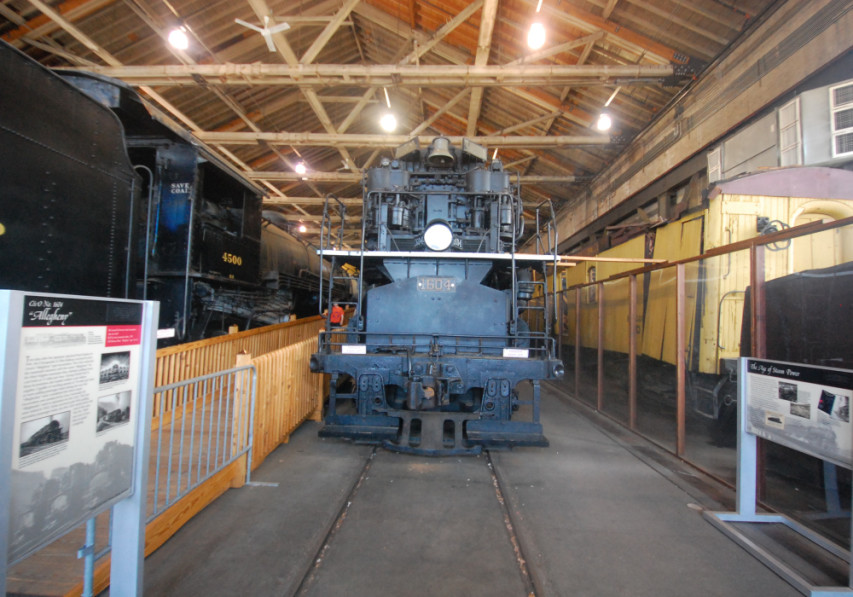Published on 5 Dec 2015
Indy sits in the chair of wisdom again to answer your questions and this time we are telling the story of German New Guinea and talk about Germans passing through Belgium in 1914.
December 10, 2015
Why Weren’t The Germans Allowed to Pass Through Belgium in 1914? I Out Of The Trenches
“I rank the odds of a Trump presidency somewhere below the odds of my winning the lottery”
Megan McArdle has toyed with the idea of classifying Donald Trump as a fascist, but is unwilling to go there for good and proper reasons:
Should we hunker down for America’s version of Mussolini/Hitler-style fascism, a la It Can’t Happen Here? Not quite. Douthat wrote a second column, pointing out the ways in which Trump is different from typical fascist leaders. Classical fascism is obsessed with tradition and secret knowledge, which feels backward in our modernist, diverse country.
The more important distinction, to my mind, is that Trump doesn’t have an organization so much as a mood.
Actual fascists, let us remember, were born out of a brutal world war that resulted in territorial losses, and left a lot of demobilized soldiers running around with dim economic prospects. Whatever your opinions on the war on terror, it is not the same scale as World War I, and it has certainly not left the U.S. in the kind of parlous condition in which Hitler and Mussolini were able to grow smaller radical groups into national mass movements. Trump himself doesn’t have that kind of dedication to his cause; just try to imagine him leading a coup, landing in jail, angrily penning The Art of the Struggle.
Implausible. Trump has far too much to lose, and too little to gain, to embrace truly revolutionary fervor.
Nor is he operating in a weak state with a short and spotty democratic history. The U.S. government has ticked along for going on 250 years, through multiple crises and an armed insurrection. Americans are pretty emotionally attached to its institutions, for all the complaints about them, and precisely because we are ethnically diverse, we tend to rest our national identity heavily upon our political institutions: not the expansionist “Drang nach Osten,” but the Constitution … the huddled masses yearning to breathe free … life, liberty and the pursuit of happiness. We have failed many times to live up to our ideals, but we have never stopped professing them.
All this matters. The main problem with fascists, after all, is not that they have creepy cartelist economic notions and uncharitable immigration policies; the problem with fascists is that they had a tendency to go on killing sprees against neighbors, internal minorities and their political enemies. I don’t like Trump’s economic pseudo-policies, or anti-immigrant sentiment. But they are so far from Nazi Germany or Fascist Italy as to be differences in kind as well as degree. And America has neither the weak institutions nor the revolutionary organizations necessary for a Trump Reich to fester.
Your business model and transformative change
At The Arts Mechanical, there’s a paean to the amazing technological achievement represented by this steam engine:

… and a return to reality by looking at how that amazing steam engine was made utterly obsolete by a humble diesel switcher and its direct descendants:
Which brings us to the picture at the head of this post. Anybody ever hear of Lima Locomotive? Here is what they did. That is a C&O RR H8 Allegheny. It is the largest and most powerful steam locomotive ever built. The locomotive was in the shed and there was no way I could get a side shot but the size of it boggles the mind. The firebox is the same size as a small house. The locomotive was designed to move mountains of coal and that’s what it did.
https://en.wikipedia.org/wiki/2-6-6-6
It was also obsolete before it was erected.
Korea: Admiral Yi – Lies – Extra History
Published on 7 Nov 2015
Yi’s life has been turned into a Confucian parable: a highly competent person who bore betrayal stoically and stayed loyal to the king. Since there was no record of his early life, that pattern is reflected in the way his early life is described. That pattern of thinking clearly influenced the historians who did cover Yi’s life, but while it stands out as unusual to those of us who aren’t familiar with that tradition, it has a subconscious impact on the people who were raised with Confucian thinking and wrote this history from it. If we looked at Western history from a foreign perspective, we would likely notice similar patterns being overlaid onto Western ways of telling history as well.
QotD: Freelance writing
A few years ago, I was called upon to inform the IRS that a former employee of mine would have liked to be paid more than I had paid him. Given that I have never met a freelance writer who thought he was being paid enough, I thought it a strange request, but I eventually understood the IRS’s line of thinking: The gentleman in question, who was in his 80s at the time, had retired from his former occupation and worked as a freelance writer. His beat involved a great deal of travel, and he deducted the expenses for which he was not compensated — which, the state of the newspaper industry being what it is, was all of them, at least as far as my editorial budget was concerned. The IRS suspected that his writing gig was somehow phony, something he had invented simply for tax deductions. In truth, he was just a freelance writer who didn’t make a lot of money — i.e., a freelance writer indistinguishable from about 88.8 percent of all freelance writers.
Kevin D. Williamson, “Mottos for Miscreants”, National Review, 2014-11-20.



